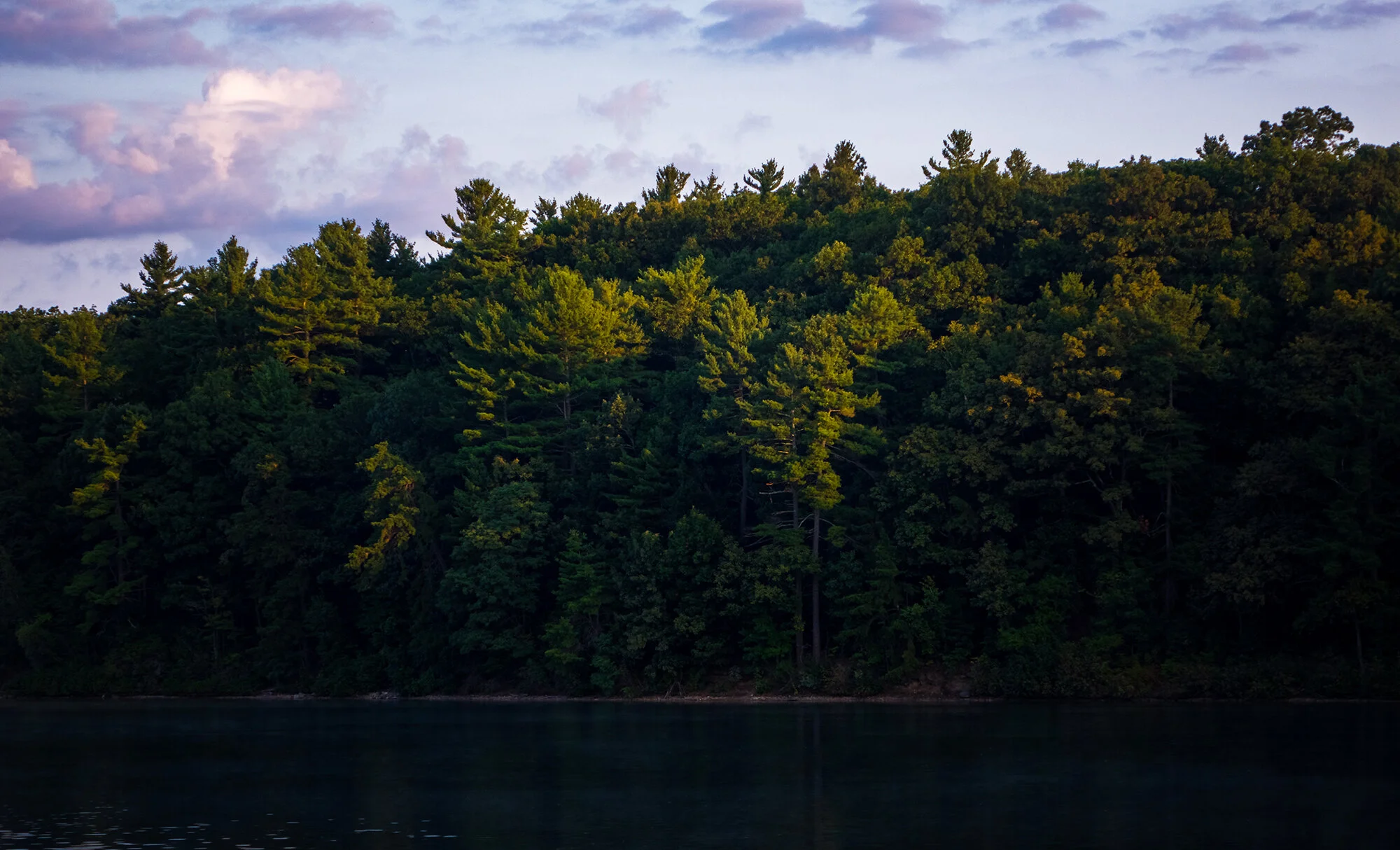“I went to the woods because I wished to live deliberately, to front only the essential facts of life, and see if I could not learn what it had to teach, and not, when I came to die, discover that I had not lived. I did not wish to live what was not life, living is so dear; nor did I wish to practise resignation, unless it was quite necessary. I wanted to live deep and suck out all the marrow of life, to live so sturdily and Spartan-like as to put to rout all that was not life, to cut a broad swath and shave close, to drive life into a corner, and reduce it to its lowest terms, and, if it proved to be mean, why then to get the whole and genuine meanness of it, and publish its meanness to the world; or if it were sublime, to know it by experience, and be able to give a true account of it in my next excursion.”
— Henry David Thoreau (1817-1862)
Walden
Our first visit to this, the most famous of all kettle ponds in the world, came about rather spontaneously. We’d been meaning to drive toward Concord on Labor Day, with thoughts of taking a long, circuitous walk in the environs of Mount Misery, Minute Man Historical National Park, and Great Meadows National Refuge. Walden Pond, of course, lies right in their vicinity, and anyone who knows me well knows that I know Thoreau well. Walden was, after all, a progenitor of modern nature writing - the work which inspired me years ago to start my collection of books on nature and place-based memoir, which now spans several hundred books and two full bookcases in our living room. I have some quibbles with Thoreau’s self-described and self-absorbed relationship with his woodland home of two years (1845-1847), but I cannot deny that I relate to how much he loved the place, and how much it changed him.
Which begs the question: why have I been avoiding the place for the past two months? It was more than the summer weather, the prospect of insect bites, or the popularity of the place - none of which have prevented me from exploring elsewhere in the Bay State. No - there was another subconscious reason, one that made me laugh and say dismissively, “It’s just another lake,” whenever Jane would gently lay the suggestion upon our weekend plans. I’m still not sure what the reason was. Perhaps, fear of ruining an imagined ideal with the real thing. Fear of showing up in the morning to a throng of tourists and realizing, “it’s just another lake,” or that the woods around it are just like any other woods.
Well, Walden is not just another lake. And the woods are not just any other woods. They are intensely beautiful, almost magical in their atmosphere. Diverting from our planned route up the Concord Turnpike, we arrive shortly before sunrise and have no trouble parking in the large, mostly empty lot that will fill to capacity by breakfast time. Walking onto the main beach by Deep Cove, we have the place mostly to ourselves, with the exception of a few solo swimmers and fishermen in the distance. Mist is rising from the lake surface; a welcome sight I have not seen in nearly a year. Canada geese pass overhead in formation - not to the south yet, just headed somewhere local. From a distant bend comes the solitary, wild cry of a northern loon; it sends a shiver of joy up and down my body. Sunrise, painting the clouds like cotton candy, soon begins to peek over the tops of the pine trees. I take some distant shots with the tripod before we climb away from lake, toward Emerson’s Cliff to the west.
To really know Walden’s beauty, one has to leave the lake behind. The path which encircles the pond, carefully flattened and manicured (and constantly dotted with one-way warnings in this era of microbial fear), is no longer a place that fosters silence and solitude and introspection. The many branching woodland paths to the west, however, are. We climb up and down through the forest, along the ridgeline of Emerson’s Cliff, down to Heywood’s Meadow, and across the MBTA commuter railroad into the Adams and Wright Woods. All the while, the sidelight of the slowly rising sun streams in through the canopy, giving me beautiful, golden-pastel splashes of light - my favorite conditions for woodland photography. Jane and I ramble through the forest, trekking our way toward Fairhaven Bay on the Sudbury River.
All around us are the signs of late summer and early autumn: sweet pleasant air, clear blue skies through thinning canopy, and splashes of golden birches and orange maples hinting at the colours of the coming season. It’s taken me a few months of walking to shake my disorientation to my new surroundings. Now that my head and my heart are no longer reeling, and I’m finally paying attention, I sense that these woods are not like the Mid-Atlantic woodlands I knew intimately. The bright, smooth-white bark of silver birch is an obvious newcomer to my camera viewfinder, as are the deep, azure greens of pine and spruce, and the rich, mahogany color of the forest floor duff. My footsteps among the trees are soft and quiet, cushioned by a blanket of pine needles, in place of the crunch of fallen leaves. I find myself thinking how it really is a beautiful place to walk, breathe, and photograph. A place that I might be able to fall in love with, over time.
After a brief stop at the boathouse on the Sudbury River, Jane and I turn back through the trees, through acres of preserved pine forest, and wind our way back across the railroad bed and around the north shore of Walden Pond. By the time we return to civilization, the sun is beaming and the daytrippers are out in full force - lawn chairs, fishing poles, picnic baskets, and laughing, happy children playing with their families, everyone mask-clad in the crystal blue water. I did not expect to ever feel this way, but seeing the crowds makes me happy. Happy that someone - anyone - might enjoy this beautiful, natural place half as much as I do. For all his introversion and love of solitude, I’d like to think that if Thoreau saw his beloved pond now, nearly two centuries later, he would have to agree.
















